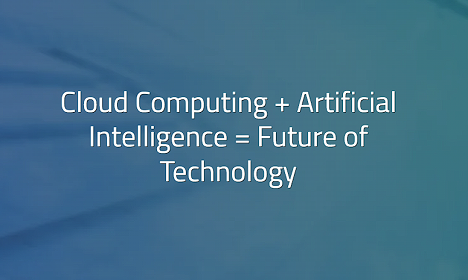
Throughout this year investors have been exposed to a wealth of information regarding artificial intelligence AI from various angles. AI serves as the common thread among the “magnificent seven”, the group of large-cap growth stocks that drove broader equity benchmarks higher in the first half of the year.
Magnificent Seven AI Stocks
Apple AAPL, Microsoft MSFT, Nvidia NVDA, Amazon AMZN, Meta Platforms META, Tesla TSLA, and Alphabet GOOGL
Best Cloud Computer Stocks
Salesforce CRM, Adobe ADBE, Snowflake SNOW, Zoom Video Communications ZOOM, ServiceNow NOW, and DigitalOcean DOCN.
Using and Investing in Artificial Intelligence
Given the breadth of this topic, it’s wise to categorize AI into two distinct domains: AI as an investment theme and AI as a practical tool. A shared characteristic between these domains is their rapid evolution. This discussion will focus on the investment aspect, specifically centered around generative AI, which currently commands considerable attention due to its application and investment implications.
Although AI has existed in various forms for a considerable time, the present emphasis lies in the realm of generative AI. The definition defines of generative AI for investors is as follows
Generative artificial intelligence AI encompasses algorithms like ChatGPT, designed to generate novel content, spanning audio, code, images, text, simulations, and videos. Recent advancements in this field have the potential to profoundly alter our approach to content creation.
However the AI investment thesis encompasses more than this, including the intersection of AI with other disruptive industries.
AI and Cloud Computing: A Synergistic Duo
One compelling example of a disruptive industry that could greatly benefit from intersecting with AI is cloud computing. This partnership is not an exaggeration but a natural pairing.
Cloud computing companies could potentially become the primary distribution channels for AI software. While small teams can code algorithms with access to vast data, larger sales forces might be inefficient and costly for AI firms. Conversely, cloud computing companies possess existing scale in hardware, processing capabilities, sales infrastructure, and established client bases.
Internet of Things (IoT), an innovative investment sector that may be overlooked, has strong ties to AI and holds immense relevance in this context.
Perhaps the most impactful application of AI is enhancing the automation of manual tasks. Surprisingly, even in our tech-savvy world, as of 2020, about 30% of manufacturing firms had fully automated processes. Human involvement remains significant in feeding information and instructions to machines. If AI can optimize processes further, data analysis will be vital. IoT firms can contribute the hardware layer in these processes.
AI’s Corporate Landscape
Currently generative AI boasts certain business applications, primarily focused on consumer interaction. While this is valuable, it suggests that AI has untapped potential on the corporate front, extending beyond industrial robotics.
For investors keen on AI, it’s crucial to highlight that AI can drive cost efficiencies across diverse industries, indicating the long-term effectiveness of this investment thesis. AI is poised to offer more significant advantages to companies seeking cost control and operational efficiencies than to consumers requesting occasional workout plans or recipes. While AI holds immense consumer potential, its business applications are extensive: advertising, search, translation, medical diagnostics, medical devices, cybersecurity, procurement, inventory management, talent acquisition, and customer service, among others.

